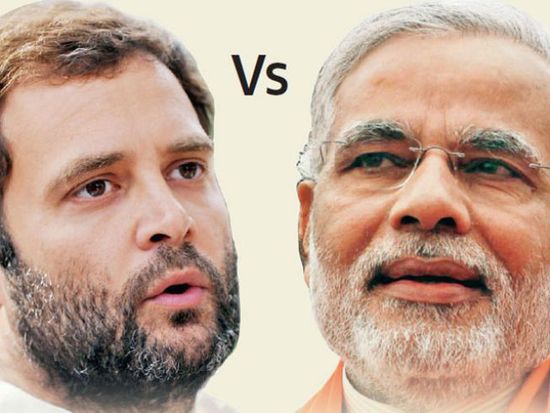In 2014, voters in three of the world’s greatest democracies will head to the polls. In May, more than 750 million Indians will choose their next Prime Minister, 150 million of which will be first-time voters. In July, 200 million Indonesians cast their vote, 67 million of whom will have the right to do so for the first time. In October, 135 million Brazilians will elect a President and the National Congress. Politics in the Global South will be dominated by the election campaigns in the three countries.
Most Indonesians will be relieved to see President Susilo Bambang Yudhoyono leave office – he is generally thought to have underperformed. The young in particular hope that Jokowi, the popular governor of Jakarta, will enter the race and tackle corruption. The opposite is true in Brazil, where none of the four potential opposition candidates (Marina Silva, Aécio Neves, Eduardo Campos and José Serra) seem likely to seriously threaten Dilma Rousseff’s reelection bid.
The arguably most interesting election campaign has just begun in India, where two controversial candidates are facing each other. The ruling Congress Party seems poised to field Rahul Gandhi, the inexperienced scion of the Nehru-Gandhi clan. His great-grandfather Jawaharlal Nehru, grandmother Indira Gandhi and father Rajiv Gandhi were all Prime Ministers. Despite several years in parliament, and despite his growing presence on billboards across India, little is known about Gandhi’s political views. Gandhi turned down a ministerial post in Singh’s government and rarely comments on delicate political issues. He categorically refuses to give interviews and has never been tested in a live debate.
Gandhi will face Narendra Modi, Chief Minister of Gujarat, an economically vibrant state in India’s North-West. While Modi’s supporters depict him as an experienced administrator capable of getting India’s languishing economy back on track, the leader of the Bharatiya Janata Party (BJP) is internationally known for his controversial role in the 2002 riots in Gujarat, which led to the death of nearly 1000 Muslims. While an investigation commissioned by India’s Supreme Court cleared him of wrongdoing during the episode, he has refused to publicly apologize or denounce the violence. Muslims fear that Modi’s Hindu nationalism could lead to sectarian violence and negatively affect their role in Indian society. Critics point out that Muslims in Gujarat are poorer than the national average, even though they live in one of the richest states.
While the BJP is expected to become the strongest party in the Lok Sabha, the lower house of the parliament, Modi will most likely need to build a coalition to be able to govern. Yet he is not known as a skilled consensus-builder. Several months ago, one of the most important partners in a potential governing coalition broke a decade-old alliance with Modi.
Rahul Gandhi has never held an important elected office, has no administrative experience, and chances that he excels at running the world’s largest democracy are low. In addition, Congress has utterly failed to make use of the strong mandate it obtained in 2009. Manmohan Singh’s last term will be seen as the low point of his grand political career. Under normal circumstances, Congress would deserve nothing but defeat next year.
And yet, Modi’s election could severely undermine India’s powerful national narrative of being a home to all religions, including Muslims, and stoke sectarian violence. Until recently, the United States had imposed a travel ban on Modi for his role in the riots. Modi’s economic record in his home-state may be decent, but the state of minorities in Gujarat is so dire that critics question whether he is the right man to lead the world’s most diverse nation. The result may be an unstable coalition made up of regional parties, incapable of implementing the economic reforms India desperately needs. Indian voters are between a rock and a hard place.
Read also:
Future Indian leader deserves more attention
Photo credit: economictimes.indiatimes









